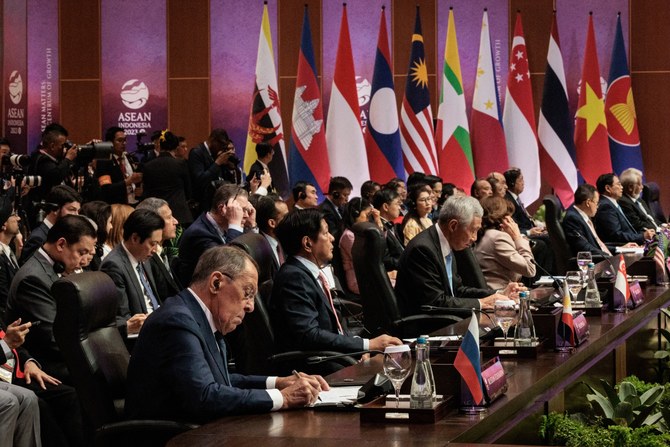
In August, as the Biden administration was pursuing a chaotic withdrawal from Afghanistan, the Taliban seized control of the country with a rapid military offensive. Now, the extremist group is seeking international recognition.
At the time of writing, no country in the world has formally recognized the Taliban as the official government of Afghanistan — although Russia, China, Pakistan and Iran have signaled varying degrees of openness to doing so.
The Taliban announced a so-called “caretaker” government last month. One thing is clear: The “new Taliban” looks a lot like the old Taliban. The caretaker government comprises hard-liners and internationally designated terrorists. No women were appointed into the government. While a small number of ethnic minorities received a few relatively junior positions, no leaders of Afghanistan’s significant minority groups — the Uzbeks, Tajiks and Hazaras — were included. Despite early speculation that former Afghan President Hamid Karzai, former Chief Executive Abdullah Abdullah and pardoned warlord Gulbuddin Hekmatyar would form part of the caretaker government, all were excluded.
Instead, the government is populated by key officials from the first Taliban government of the late 1990s and those actively involved in the insurgency against international and Afghan forces since 2001. Several new senior Taliban government officials are considered war criminals by the international community. For example, Deputy Defense Minister Mullah Mohammed Fazil and Minister for Borders and Tribal Affairs Mullah Noorullah Noori are accused of ordering the massacres of ethnic Hazara, Tajik and Uzbek communities in Mazar-e-Sharif in 1998. At least 14 members of the Taliban’s so-called caretaker government are under some sort of UN sanctions.
Perhaps most concerning, several new government ministers are members of the notorious Haqqani network, a terrorist outfit with close links to Al-Qaeda that was responsible for some of the most deadly terrorist attacks ever seen in Afghanistan. Leaders of the Haqqani network were given four plum positions in the caretaker government. For example, Sirajuddin Haqqani, who is not only the leader of the Haqqani network but was also nominated to be the Taliban’s deputy emir in 2016, is now serving as the powerful minister of interior. Sirajuddin’s uncle, Khalil Haqqani, is now the minister for refugees. Khalil was also responsible for security in Kabul at the time of the August Daesh-Khorasan suicide attack that left almost 200 people dead. The FBI has a $10 million bounty on Sirajuddin’s head, while offering a $5 million reward for Khalil.
The UN is also becoming a geopolitical battleground for the Taliban. Some UN members seem eager to recognize the Taliban as the legitimate government of Afghanistan, but most are unwilling to do so at this time. The question about Taliban participation was raised during last month’s UN General Assembly gathering in New York. The current Afghan representative is a hold-over from the previous Ghani government. Even though the Taliban formally requested to send a representative to speak at the UNGA, nobody ended up speaking for Afghanistan during the event.
Recognition by the UN would mean the Taliban inheriting Afghanistan’s existing membership in other UN bodies, including UNESCO and the Commission on the Status of Women. Considering the Taliban’s track record of destroying UNESCO cultural sites such as the Buddhas of Bamiyan and its well-established record of mistreating women and girls, it would be preposterous to allow the militant outfit into either organization.
Although they might not admit it, the Taliban want international recognition to access international aid and assistance. However, the international community should refuse to recognize the Taliban as the legitimate government of Afghanistan. Of course, there might be cases when coordination or engagement with the Taliban is needed for humanitarian reasons, but this is not the same as formal recognition.
The international community should also refuse to allow the Taliban to represent Afghanistan in international organizations like the UN. After all, considering that so many of the caretaker government are under some sort of UN sanctions, it would be ridiculous for the UN to recognize the Taliban as the legitimate government of Afghanistan.
The Taliban, Al-Qaeda, Daesh and many associated groups are all currently under UN sanctions. In addition, a number of individuals associated with those groups are also listed as subject to UN sanctions. Those nations on the UN Security Council should oppose efforts to terminate the sanctions on terrorist groups operating in Afghanistan or remove individuals from the sanctions list.
Meanwhile, the Taliban have already dashed all hopes that they may have developed any respect for human rights. They have canceled female sports and secondary education, conducted public hangings, welcomed back senior members of Al-Qaeda, tortured journalists, and banned music.
The international community should not throw the extremists occupying the presidential palace in Kabul a lifeline by bestowing recognition and legitimacy.












